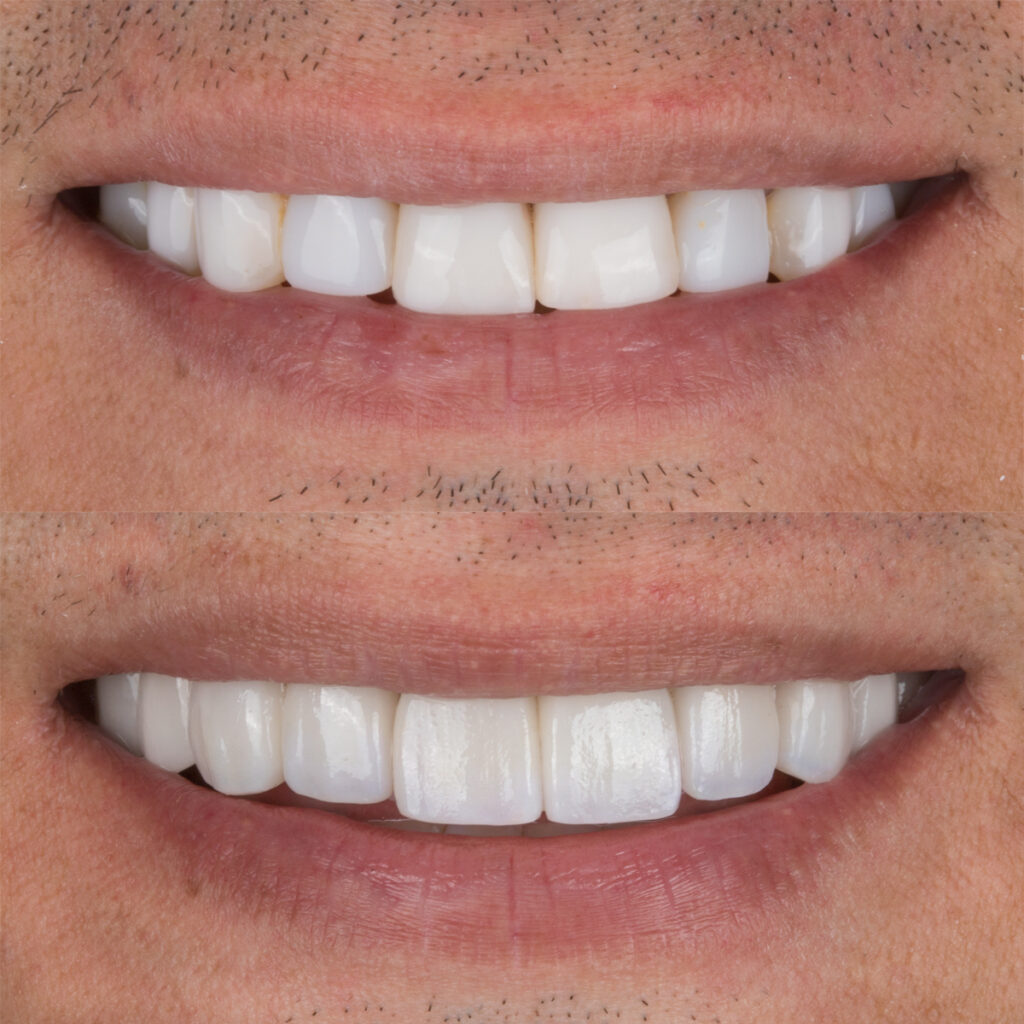All about dental veneers, do they damage my teeth?
Have you ever wondered what dental veneers are? They are thin and small sheets that are used as a covering for your teeth, thus giving them a natural and aesthetic appearance. This method consists of placing a very thin plate on the anterior surface of the tooth to improve its shape and color.
The myth of the dental veneers: Benefits and care for a radiant smile
The dental veneers have been the subject of controversy and doubt among those seeking to improve their smile. However, it is important to demystify the belief that these thin sheets damage teeth. Actually, dental veneers offer a highly beneficial aesthetic and functional solution for those who want to correct imperfections and show off a radiant smile.
The dental veneers They are a popular choice for correcting problems such as discolored, fractured, misaligned, or gapped teeth. They are made of strong and durable materials, such as porcelain or composite resin, making them a reliable and safe solution when placed by trained dental professionals.
Contrary to what some people think, dental veneers are a minimally invasive procedure that involves minimal wear on tooth enamel. Advances in dentistry have made it possible to create thinner veneers, further reducing any impact on natural tooth structure.
This option for a while now has acquired great knowledge worldwide in aesthetic treatments, because it is an excellent option to protect your dental health without leaving aside the aesthetics of your smile.
How to place dental veneers
Many times, before starting a process like this, we seek to acquire information about what it entails, we seek to clarify your doubts so that you feel safe with us.
Before starting the process, the dentist must take an impression of the dental area to improve the size and coating of the tooth. Once you have the piece, we will continue with a test to confirm that it was perfect for your tooth.
To carry out the procedure, a part of your tooth is filed so that it can adjust to the surface of the gum and teeth, in order not to notice the veneer, to finish it is glued with a resinous cement. After this, our process will be over!
It should be noted that at the end of the process you should brush your teeth as you normally do and floss after brushing. You should use a toothpaste that contains fluoride to achieve a better cleaning.
However, you should consult with your dentist on a regular basis in this regard and he will recommend the best tips and products to keep your veneers in perfect condition.
Not sure when it is necessary to use them?
This treatment is commonly used in cases such as:
Opening between the teeth
Dental pigmentation
Misaligned teeth
Dental chipping
Wear on teeth
The veneers give an attractive appearance to the teeth while maintaining an attractive and lasting smile. During this treatment, the appearance of spots is difficult, one more reason why it is the best decision for people looking for a perfect smile.

Types of dental veneers
There are several materials with which dental veneers are worked, although all of them are made with the same objective: to improve dental aesthetics.
Ceramic or porcelain veneers: there are currently 2 types of ceramic veneers:
- Ultrafine: they are the ones that offer more duration and quality, due to this it is the material that has the most demand in the dental world. These sheets have a thickness very similar to that of a contact lens, with a thickness between 0.3 and 1 millimeters, and generally it is not necessary to file or change the shape of the natural tooth.
- Zirconium: although it is a very resistant material and offers great results, it is used in specific circumstances in the case of veneers, this is because its thickness is greater and they are a bit more opaque than the veneers mentioned above.
It is normal for the dentist to recommend this use when the patient has a metal pin that cannot be removed.
- Composite: Composite veneers offer a successful result for the patient's oral cavity, but the material with which they are made results in them being less durable. For this reason, this type of mask is recommended in 2 very specific cases:
· When we are going to make a simply special correction.
· In case the patient is very young.
Benefits of dental veneers
- Firstly, its naturalness, due to its completely distinguished manufacture.
- They are capable of being manufactured in the desired shade and personalized in terms of their shape. In this way, a sufficiently light color can be achieved without losing its natural tone.
- They are resistant to stains and possible discoloration caused by black drinks (coffee, wine, coca cola, among others) or by tobacco. Therefore, it allows a young and white smile during its useful life.
- They allow to correct many defects of the teeth without altering the proper teeth. There are even veneers that can be placed without having previously done a treatment to the teeth, it means that it is a reversible procedure.
- They can be used to close gaps between teeth, correct (slight) tooth crowding, and reshape teeth that have undergone minimal breakage.
Duration and resistance
Ceramic or porcelain veneers last 15 years and do not lose color. Its duration depends almost entirely on the patient following the instructions of his dentist. However, the idea that veneers can be forever is becoming very popular, due to the fact that there are several studies that affirm that these veneers can last from 25 to 30 years.
Composite veneers last approximately 5 years. To reach this period, it is necessary to constantly go to the dentist for maintenance checks and to polish the veneers.

